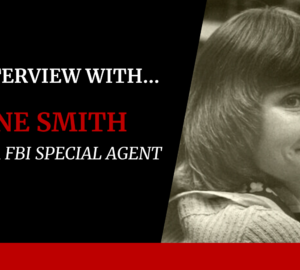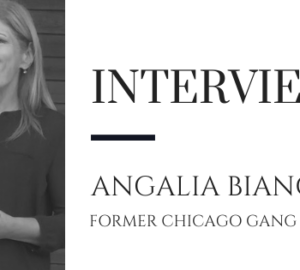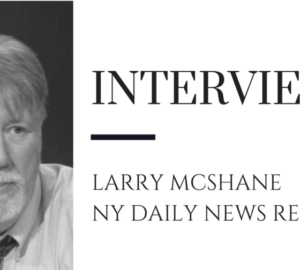Niko was born in St. Petersburg, Russia, but following a temporary stay in Italy the family then moved to America. It was in America where Niko would learn English from the unlikeliest of teachers. One more continental shift would see the family cross the Atlantic to England and settle in Bath, Somerset. In 1987, Bath became a UNESCO World Heritage Site.
A self-proclaimed “geek rather than a gangster” Niko found fitting in among the predominantly white British school children difficult. However, with “NIKO! NIKO!”, still ringing in his ears, something clicked.
Niko Vorobyov is the author of ‘Dopeworld’ which is described on Amazon as “A definitive and global exploration into the war on drugs and the effect it’s having on humanity”.
It is our pleasure to introduce Niko as our next guest in the NCS hotseat.
Niko, thank you joining us to talk about your book ‘Dopeworld’ which is available on Amazon. Let’s get the Covid19 question out the way first.
What have you been up to throughout the lockdown?
Honestly for me, it’s not been that different. I’ve just been sitting at home in my PJs, gaming or watching movies. I’m balls-deep in Red Dead Redemption right now. It took a while but I’m glad the rest of the world has adopted my lifestyle.
Do you think your experience of prison has helped you cope better with the lockdown, and what advice would you give others?
When I was inside all my goody two-shoes friends who just graduated would write to me, trying to relate as if being stuck at home with no job was anything like jail. It’s not. You have internet, you can go outside. You’re not cut off from the rest of the world. I don’t know what it’s like in other countries but in Britain we didn’t exactly have martial law: you can still go buy milk and walk your dog or whatever. Outside, if you’re feeling stressed or depressed about something you can call your mates to talk about it, or go for a walk to chill yourself out. In prison, you’re locked in your cell most of the day with only your own thoughts for company.
‘Dopeworld’ is described as “A definitive and global exploration into the war on drugs and the effect it’s having on humanity”, but can you share something about the book that isn’t in the official publicity?
I think one of the problems if you’re honest as a writer is you’re your own worst critic. Since Dopeworld came out last year I’ve had a lot of time to go back and fix things, so the version you’re getting this summer this summer is the definitive one.
What or who inspired you to write ‘Dopeworld’? And how long did it take to write?
It took me about two-and-a-half years to put together. I’ve read a lot of true crime and drug history books like McMafia and Chasing the Scream, so they’re what inspired me. But I also thought the guys writing those books are all serious, respected journalists, so they wouldn’t be caught dead sipping hallucinogenic cocktails with a native shaman in the Amazon jungle. But that’s what the drug world is about! I don’t have to worry about being respectable so I don’t have that problem, haha.
Did you ever consider writing ‘Dopeworld’ as a work of fiction?
Ha, my mum keeps saying that but I don’t know if I’d be any good at it. Maybe I’ll try one day.
In ‘Dopeworld’ you take us on a journey around the globe. What was the journey like in getting ‘Dopeworld’ published?
One of my major inspirations in prison was reading Mr Nice, which is a memoir by the famous Welsh hash smuggler Howard Marks. His network spanned across the globe, making connections with organizations like the Mafia, the CIA, the IRA and the Brotherhood of Eternal Love. He was unapologetic and kind of idealistic in a way because unlike a lot of former drug runners he wasn’t a gangster himself and neither was I, and didn’t cry about ruining his life or ruining others’ lives. He understood that people are going to smoke pot, just like they still had a drink in Prohibition. So when it came to writing my own book, unfortunately he’d died of cancer by then, but his old agent became my agent and that’s what got me the deal.
The events of Valentine’s Day 2009 would’ve put most people off taking the future path you did, why not you?
You know, when you’re young like me (I was 18), your risk-reward assessment is skewed. You think that you’re invincible. I suppose that’s why in every war it’s young men sent to die: not just because they’re physically fit but because none of them think they’re the ones catching the first bullet in an enemy ambush. But it was me staggering into a hospital soaked in blood!
I wanted to prove myself and I don’t think it really dawned on me how serious the game I was playing was.
Having said that, moving to London didn’t give you the best of starts, did you at any stage, early on, think “stuff this” and take up a different career?
Nah, I saw it all as a learning curve. Don’t give up on your dreams! But you know, that’s an interesting thing. Forget all the movies and rap videos, most drug dealers don’t actually earn that much. There’s even a study showing how most members of this crack-slinging gang in Chicago still lived with their mothers. They’re in it either because they wanna be part of a club — being in the Gangsta Killer Bloods is part of their identity — or like all those waitress who move out to Hollywood, they’re hoping to catch their big break one day. It’s the possibility of becoming that guy in the rap videos which keeps them going, which is sort-of what happened to me in the end: I had a buncha dudes working for me and enough dough to live comfortably, but not for as long as I would have liked.
Early in the book you write about your experience of entering England’s prison system when you were sent to HMYOI Isis. I won’t spoil anything for the reader, so my question is, how did you fill up your time in there? And, did you read much during your sentence and if so who/what genre did you read?
I’ve already mentioned Howard Marks – that’s one of those books that everyone reads when they’re in jail. That and Charles Bronson, Britain’s most dangerous prisoner. Bronson was originally jailed for seven years back in 1974 for an armed robbery that netted him £26.18. But after four decades (most of them spent in solitary confinement) of fighting guards, taking hostages and kicking off one-man riots, he’s still there. One book that Charlie wrote was about how to stay fit in confined spaces, something you’re gonna need if you wanna lube yourself up to take on the screws. Every day, without fail, I went to the exercise yard and did a dozen sets of pull-ups and dips on the bars. Then later in my cell I’d do some press-ups, sit-ups, squats and more dips off my bed.
And countless hours were spent watching TV. When I first came I didn’t have a clock so I’d only know the time when the Simpsons came on at 6 o’clock. I saw every single episode of the Fresh Prince, from beginning to end, when they showed the re-runs every weekday. It’s one of those shows where you watch it when you’re young and think it’s really cool, but then you watch it now and it’s so horribly, horribly 90s. Nevertheless, it was the show that kick-started Will Smith’s career, and without it we would never have seen such Oscar-winning masterpieces as Bad Boys and Bad Boys II.
For me, the chapter (CrIsis) about your time in prison is my favorite, you can feel the energy jumping off the pages. What chapter is your favorite, and if different, which chapter was the most enjoyable to write?
Thanks bro. I think my favourite chapter would be Killers and Karaoke, where I talk about the Philippines. That’s the chapter we originally pitched to the publisher. What’s going on there right now, with the death squads murdering tens of thousands of people as part of a state-run protection racket (or at least corrupt elements within the state at the highest levels) disguised as a war against drugs, has been almost forgotten in the media. I saw my first murder scene in the Philippines. Someone got popped outside our restaurant as we were eating, their brains blown out on the sidewalk. It’s a fucking mess but I’m proud to put the spotlight on it.
The unexpected meeting with El Chapo’s brother must’ve been a surreal moment, especially as he was eating dinner. How did that go?
Yeah. We were in a small village deep in the mountains of Sinaloa (Mexico) in cartel territory. Just imagine a huge, white, drug lord’s manor from an 80s action movie with henchmen standing around, except instead of Miami Vice suits they’re wearing army camos and bandoliers. And inside there was this moustached guy eating dinner with his family. He looks up at us like, “who the hell are you?” Turns out we had the wrong address — we were actually looking for El Chapo’s cousin who had the same name and lived just around the corner. I don’t speak very good Spanish so my guide made our apologies and we left. Since nothing bad happened so he must have known we’d be coming… I wouldn’t like to wander in there uninvited.
If you were a tour guide, where would you want take visitors?
In Medellín, Colombia, there’s a huge tourist industry around Pablo Escobar, especially after Narcos. As I mention in the book, not everyone likes it: they’d rather their country wasn’t just known for white lines and bloody mayhem. But like it or not, for a lot of tourists that’s what put Colombia on the map.
It’s only a matter of time before someone starts doing that in Sinaloa. A whole narcotrafficking subculture has evolved there. Drive up to the Jardines del Humaya cemetery and see the elaborate tombs were the narcos were buried. Leave an offering at the shrine of Malverde, the patron saint of drug dealers, then end your day being serenaded by narco-corridos, the folk music that glorifies the bandits. Maybe stop by the gift shop and pick up one of those gold-plated AKs.
Out of all the countries you have visited, or lived in, which one is your favorite?
Just to visit as a tourist: Iran. You know how in a lot of the world it can sometimes feel the locals are trying to take you for every wealthy, First World tourist dollar that they can? In Iran it’s the opposite. All you see on TV are angry crowds screaming “Death to America!”, but it’s not like that at all. I’ve never been made to feel so welcome as I have there. Living there though, with the nutters in charge, is another story.
I love Amsterdam, but it’s too expensive for me there. I could live in Mexico: I love the food, they like to party, and everything costs peanuts. Except for Cancún, but that’s basically a colony of drunk American spring-breakers.
I might complain about it or say how it’s boring, but at the end of the day I’ve lived in Britain most of my life and it’s home.
What is the main message you would like the reader to take from ‘Dopeworld’
For better or worse, drugs are here to stay. We’ve had ganja, opium for thousands of years; it’s only because of these recent hang-ups we’ve made them against the law. Most people don’t get addicted, but ask any addict if breaking the law stopped them! It’s the same as being a drunk, except if you had access to medical-grade heroin you’d be a lot healthier than a drunk. All the law does is enable these powerful criminal organisations. If you arrest a mob boss or even his whole crew, all that means is there’s less competition, and the price goes up. You’ve done the other gangsters a favour. Drugs are the biggest criminal industry — not everyone has the balls to pull off a bank heist, but selling drugs is so easy even an idiot like me can do it.
If ‘Dopeworld’ was made into a film, who would you want to play you?
Fuck, you know who would have been perfect? I gotta pour one out for my boy, Anton Yelchin, who starred in movies like Star Trek and the Green Room. He was the same age as me, born in St Petersburg, and even played a kinda-similar role in Charlie Bartlett: a kid who deals prescription meds at his school to be popular. I saw him onscreen and thought: that was me.
The other cinematic drug dealer I could relate to was Luke Shapiro (Josh Peck) in The Wackness: an awkward teen who strikes up a friendship with Method Man and sells pot to his therapist, but doesn’t know how to talk to girls. So it’s between Josh and Anton (RIP).
So, what’s next for Niko, any more books in the pipeline?
I’ve started working on another non-fiction book, How To Break Out Of Jail. Nice controversial title. I don’t wanna say too much about it, but you’re gonna hear from some interesting characters.
We also have some great writers (hidden compliment there, Niko) here at NCS, if you could hand pick a famous writer as a mentor, dead or alive, who would you choose?
Good question! I’d like to hang out with other true crime authors like TJ English, Ioan Grillo and Misha Glenny and pick up a few tips. Or someone like Jon Ronson and see the method to his madness. Or David Simon, the writer of Homicide and The Wire, for his master storytelling.
I’d like to finish our interview with a few fun questions, first up. ‘Would you rather?’
Would you rather always be an hour early or be constantly twenty minutes late?
I don’t think I’ve been an hour early in my life.
Would you rather live in a haunted mansion or live in an un-haunted cottage?
Mansion.
Lastly, Either Or?
Movie or book? Movie.
Coke or Pepsi? Gram of coke, please.
Hot or cold? Hot.
City or country? I love the big city or the wild country – nothing in the middle.
Niko, it has been an absolute pleasure interviewing you and thank you so much for giving our readers an insight into you and your excellent book, ‘Dopeworld’.
Thank you!
- Ciro Dapagio’s MobKing: Trailer & Review - July 24, 2023
- LUCKY: A True Crime Graphic Novel - April 25, 2023
- The Theft of The Marlborough Diamond – Chapter 2 - February 14, 2023









